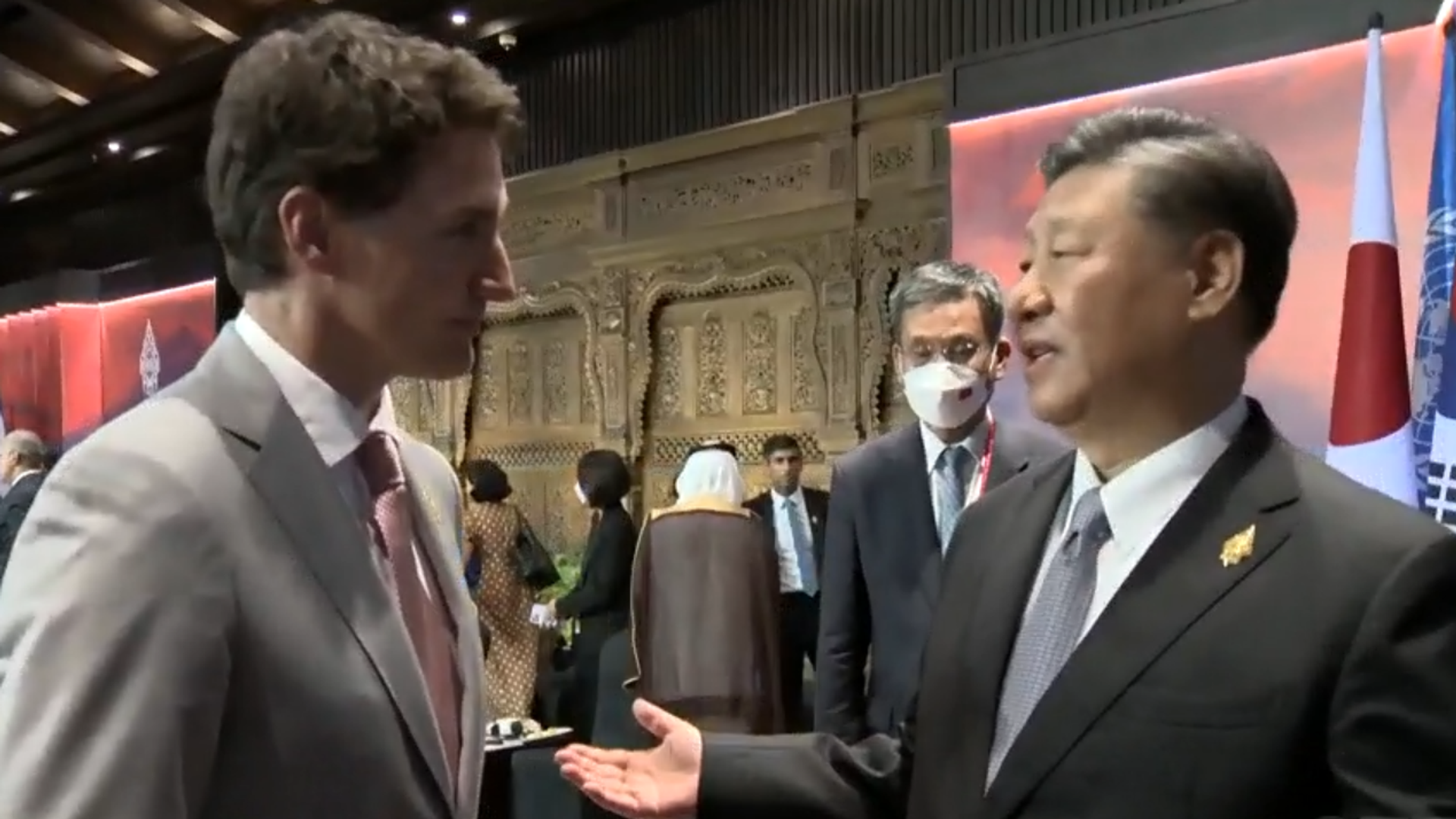https://sputnikglobe.com/20221117/3-reasons-chinas-xi-was-right-to-chide-canadas-trudeau-over-talks-leaked-to-media-1104330972.html
3 Reasons China's Xi Was Right to Chide Canada's Trudeau Over Talks Leaked to Media
3 Reasons China's Xi Was Right to Chide Canada's Trudeau Over Talks Leaked to Media
Sputnik International
As any Western businessman who has worked in China will tell you, in Chinese culture, propriety, discretion and patience in negotiations trump wheeling... 17.11.2022, Sputnik International
2022-11-17T12:21+0000
2022-11-17T12:21+0000
2022-11-17T12:21+0000
analysis
china
canada
xi jinping
justin trudeau
https://cdn1.img.sputnikglobe.com/img/07e6/0b/11/1104330809_17:0:1286:714_1920x0_80_0_0_c9d7b0edd7dd522396f49a4d82fa2440.png
Xi Jinping’s open reprimand of Justin Trudeau on Wednesday at the G20 Summit for disclosing the details of their private face-to-face talks sparked a reflection-free outcry in Western media, which immediately accused the Chinese president of “lecturing” the Canadian prime minister, and painted the exchange as an “awkward” departure from diplomatic tact upset Xi’s “choreographed return to the global stage.”“Everything we discussed is leaked to the papers. That’s not appropriate,” Xi told a nodding Trudeau through an interpreter, referring to reports that Trudeau had raised “serious concerns” about alleged Chinese meddling in Canada’s elections in their talks this week.“That’s not the way the conversation was conducted,” Xi emphasized, shaking his head ‘no’ and gesturing toward Trudeau with both arms.“In Canada, we believe in free and open and frank dialogue,” the Canadian leader responded, not waiting for Xi’s interpreter to finish his statement that “if there is sincerity, we can communicate well with mutual respect, otherwise the outcome will not be easy to tell.”“We will continue to look to work constructively together. But there will be things we will disagree on,” Trudeau added. “Let’s create the conditions first,” Xi interjected, shaking Trudeau’s hand and walking away.The Grownup in the RoomIn typical Chinese diplomatic style, Beijing quickly clarified that Xi did not intend to lecture or criticize Trudeau, with Foreign Ministry spokeswoman Mao Ning assuring that the exchange was “very normal.”“I don’t think it should be interpreted as Chairman Xi criticizing or accusing anyone,” Mao said at a briefing Thursday.The spokeswoman also stressed that China “never interferes in the affairs of other countries,” dismissing claims in Canada that Beijing funded a “clandestine network” of candidates and staffers in the 2019 elections, in which Trudeau’s Liberals lost 20 seats and were forced to form a minority government. Ottawa has opened a parliamentary probe into the matter.Pouring Gasoline on a Dumpster Fire?Xi’s unprecedented public expression of frustration with Trudeau over the leaks has deep roots. Even before Canadian lawmakers began making their ‘election meddling’ claims, relations between Beijing and Ottawa were far from smooth, with Canada’s December 2018 arrest of Huawei CFO Meng Wanzhou at Washington’s behest sparking the worst diplomatic cooling in decades.It was Justin Trudeau’s father, Prime Minister Pierre Elliott Trudeau, who paved the way for forging contemporary Canada-China relations, being among the first Western leaders to recognize the People’s Republic in 1970, nearly a decade before Canada’s southern neighbor did so. It is therefore not without a sense of historical irony that the elder Trudeau’s son has done so much to undo his father’s legacy.The Meng incident was only the first of a series of back-and-forth blows to ties, with the two countries slapping sanctions on one another in an acrimony-filled spat over the fate of China’s Uyghur population, whom Canadian officials alleged were being subjected to “genocide.” China denied the claims and shot back by pointing to Canada’s legacy of abuse of its Indigenous community, and called for a UN investigation into the matter.The spat also spread to economics, with trade falling after Meng’s arrest, and suffering another hit again this year after Canada copied allies and banned Huawei and ZTE from its 5G infrastructure, citing as-yet unproven claims that the Chinese Communist Party infiltrated its own tech companies so spy on Canadians.Apparently seeking to add fuel to the raging dumpster fire, Canadian Foreign Minister Melanie Joly made a fresh shot across the bow against Beijing last week, calling the PRC an “increasingly disruptive global power” and asking firms to think twice before doing business with the Asian nation. Ottawa plans to publish a new ‘Indo-Pacific Strategy" document later this month in which it will reiterate its "human rights" allegations against Beijing. A Chinese response will most certainly be forthcoming.Despite the rhetoric, Canada remains heavily dependent on China for its economic well-being, with the Asian nation being its second-largest trading partner (Canada, for its part, doesn’t even make China’s top fifteen). Canada’s imports from China include things like electronics, electrical equipment, machinery, steel, aluminum, vehicles, and pretty much everything you’ll find at a typical Canadian big box store. In return, China gets Canadian oil seeds, cereals, wheat, fish, coal, wood pulp and other resources. Not a bad deal overall, considering Canada gutted its own industrial base decades ago, and would suffer a major hit to its bottom line if Beijing backed Xi’s public scolding of Trudeau with actual economic repercussions.Diplomacy = TactOne of the reasons Xi’s departure from his typical diplomatic style in his exchange with Trudeau is so rare has to do with culture. In the Anglosphere’s diplomatic tradition, wheeling and dealing and leaks are a legitimate part of the political game. As Private Secretary Humphrey Appleby famously quipped in the hit 80s BBC series ‘Yes, Minister,’ “the ship of state is the only ship that leaks from the top.”In Chinese politics, things are different, and decorum and tact remain on display even when a fierce battle may be raging behind the scenes. It’s enough to recall how the mere footage of a visibly unwell former Chinese president Hu Jintao being led off the stage of the tribune at last month’s Communist Party Congress sparked endless speculation in Western media about whether it was really some kind of hidden power move by Xi.Ultimately, nothing justifies the lack of tact shown by Trudeau in leaking the details of their Bali talks to the press. The Oxford Dictionary defines “diplomacy” as “the art of dealing with people in a sensitive and tactful way.” In sensitive diplomatic conversations where one or both sides are often asked to make concessions they would prefer not be made public, that means not blabbing to reporters the moment you walk out of the negotiations room.Relearning DiplomacyThe lack of tact shown by Ottawa vis-à-vis the Chinese is not unique. In an interview with Sputnik earlier this month, former Austrian Foreign Minister Karin Kneissl pointed out that in today’s world, many leaders have “lost all capacity to look into each other’s eyes, to take time and to build trust through conversation.”Suggesting that diplomacy had “died a silent death” in recent years and was replaced by computer-aided “Zoom diplomacy,” Kneissl said that today, the vocabulary used, as well as “the attitude of some high-ranking government officials, professional diplomats, has nothing to do with what I would call a genuine conversation that can lead to something.”Perhaps if Prime Minister Trudeau cut down on table yoga and political virtue-signaling and took a page out of the Austrian diplomat’s playbook, his government could finally patch up the troubled relationship with an Asian superpower which his father helped forge fifty years ago and he managed to ruin in four.
https://sputnikglobe.com/20221116/not-appropriate-chinese-president-xi-scolds-canadian-pm-trudeau-over-g20-leaked-talks---video-1104297516.html
https://sputnikglobe.com/20220821/cia-carried-out-black-ops-to-get-uk-to-drop-huawei-equipment-in-5g-infrastructure-book-claims-1099832251.html
https://sputnikglobe.com/20221103/canada-orders-three-chinese-companies-out-of-its-critical-minerals-deals-over-security-concerns-1103534729.html
https://sputnikglobe.com/20221022/ex-chinese-leader-hu-jintao-left-party-congress-due-to-feeling-unwell---reports-1102536762.html
https://sputnikglobe.com/20221103/karin-kneissl-opens-up-to-sputnik-on-death-of-diplomacy-energy-crisis-grain-deal-and-press-freedom-1103725521.html
china
canada
Sputnik International
feedback@sputniknews.com
+74956456601
MIA „Rossiya Segodnya“
2022
News
en_EN
Sputnik International
feedback@sputniknews.com
+74956456601
MIA „Rossiya Segodnya“
Sputnik International
feedback@sputniknews.com
+74956456601
MIA „Rossiya Segodnya“
justin trudeau, xi jinping, china, canada, relations, leaks, scolding, reprimand
justin trudeau, xi jinping, china, canada, relations, leaks, scolding, reprimand
3 Reasons China's Xi Was Right to Chide Canada's Trudeau Over Talks Leaked to Media
As any Western businessman who has worked in China will tell you, in Chinese culture, propriety, discretion and patience in negotiations trump wheeling, dealing and one-upmanship any day. That’s why the Chinese president’s rare public criticism of his Canadian counterpart is so significant.
Xi Jinping’s
open reprimand of Justin Trudeau on Wednesday at the G20 Summit for disclosing the details of their private face-to-face talks sparked a reflection-free outcry in Western media, which immediately accused the Chinese president of
“lecturing” the Canadian prime minister, and painted the exchange as an
“awkward” departure from diplomatic tact upset Xi’s
“choreographed return to the global stage.”“Everything we discussed is leaked to the papers. That’s not appropriate,” Xi told a nodding Trudeau through an interpreter, referring to reports that Trudeau had raised “serious concerns” about alleged Chinese meddling in Canada’s elections in their talks this week.
“That’s not the way the conversation was conducted,” Xi emphasized, shaking his head ‘no’ and gesturing toward Trudeau with both arms.
“In Canada, we believe in free and open and frank dialogue,” the Canadian leader responded, not waiting for Xi’s interpreter to finish his statement that “if there is sincerity, we can communicate well with mutual respect, otherwise the outcome will not be easy to tell.”
“We will continue to look to work constructively together. But there will be things we will disagree on,” Trudeau added. “Let’s create the conditions first,” Xi interjected, shaking Trudeau’s hand and walking away.
In typical Chinese diplomatic style, Beijing quickly clarified that Xi did not intend to lecture or criticize Trudeau, with Foreign Ministry spokeswoman Mao Ning assuring that the exchange was “very normal.”
“I don’t think it should be interpreted as Chairman Xi criticizing or accusing anyone,” Mao said at a briefing Thursday.
The spokeswoman also stressed that China “never interferes in the affairs of other countries,” dismissing claims in Canada that Beijing funded a
“clandestine network” of candidates and staffers in the 2019 elections, in which Trudeau’s Liberals lost 20 seats and were forced to form a minority government. Ottawa has opened a parliamentary probe into the matter.
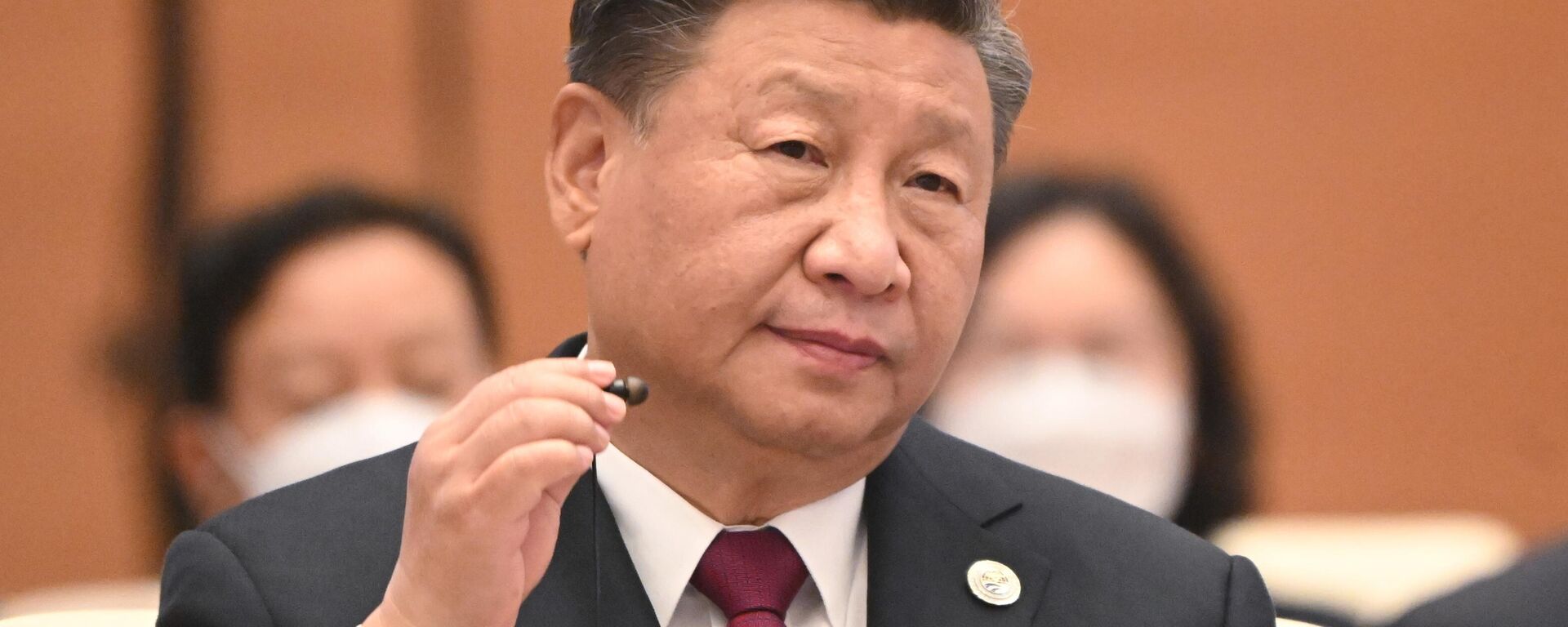
16 November 2022, 15:01 GMT
Pouring Gasoline on a Dumpster Fire?
Xi’s unprecedented public expression of frustration with Trudeau over the leaks has deep roots. Even before Canadian lawmakers began making their ‘election meddling’ claims, relations between Beijing and Ottawa were far from smooth, with Canada’s December 2018 arrest of Huawei CFO Meng Wanzhou at Washington’s behest
sparking the worst diplomatic cooling in decades.
It was Justin Trudeau’s father, Prime Minister Pierre Elliott Trudeau, who paved the way for forging contemporary Canada-China relations, being among the first Western leaders to recognize the People’s Republic in 1970, nearly a decade before Canada’s southern neighbor did so. It is therefore not without a sense of historical irony that the elder Trudeau’s son has done so much to undo his father’s legacy.
The Meng incident was only the first of a series of back-and-forth blows to ties, with the two countries
slapping sanctions on
one another in an acrimony-filled spat over the fate of China’s Uyghur population, whom Canadian officials alleged were being subjected to “genocide.” China denied the claims and shot back by pointing to Canada’s legacy of abuse of its Indigenous community, and called for a UN investigation into the matter.
The spat also spread to economics, with trade falling after Meng’s arrest, and suffering another hit again this year after Canada copied allies and
banned Huawei and ZTE from its 5G infrastructure, citing as-yet unproven claims that the Chinese Communist Party infiltrated its own tech companies so spy on Canadians.
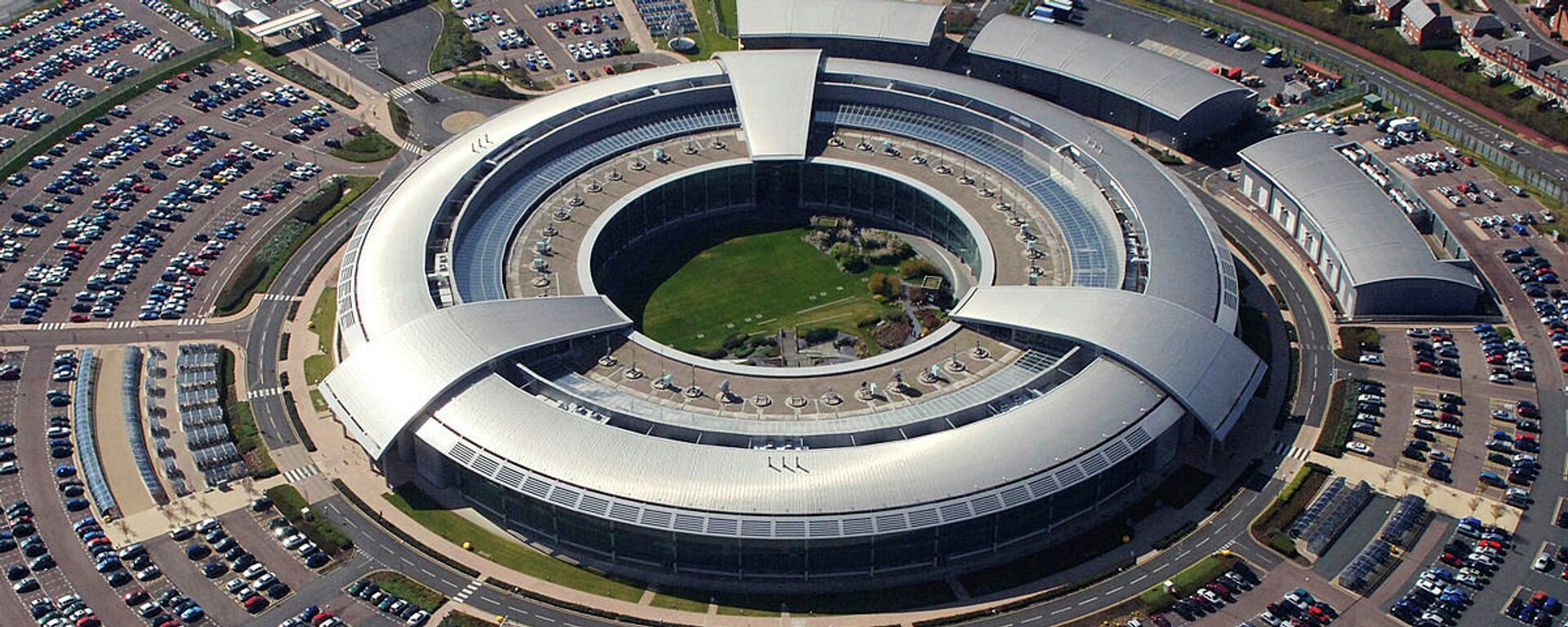
21 August 2022, 18:56 GMT
Apparently seeking to add fuel to the raging dumpster fire, Canadian Foreign Minister Melanie Joly made a fresh shot across the bow against Beijing last week, calling the PRC
an “increasingly disruptive global power” and asking firms to think twice before doing business with the Asian nation. Ottawa plans to publish a new ‘Indo-Pacific Strategy" document later this month in which it will reiterate its "human rights" allegations against Beijing. A Chinese response will most certainly be forthcoming.
Despite the rhetoric, Canada remains heavily dependent on China for its economic well-being, with the Asian nation being its second-largest trading partner (Canada, for its part, doesn’t even make China’s
top fifteen). Canada’s imports from China
include things like electronics, electrical equipment, machinery, steel, aluminum, vehicles, and pretty much everything you’ll find at a typical Canadian big box store. In return, China gets Canadian oil seeds, cereals, wheat, fish, coal, wood pulp and other resources. Not a bad deal overall, considering Canada gutted its own industrial base decades ago, and would suffer a major hit to its bottom line if Beijing backed Xi’s public scolding of Trudeau with actual economic repercussions.
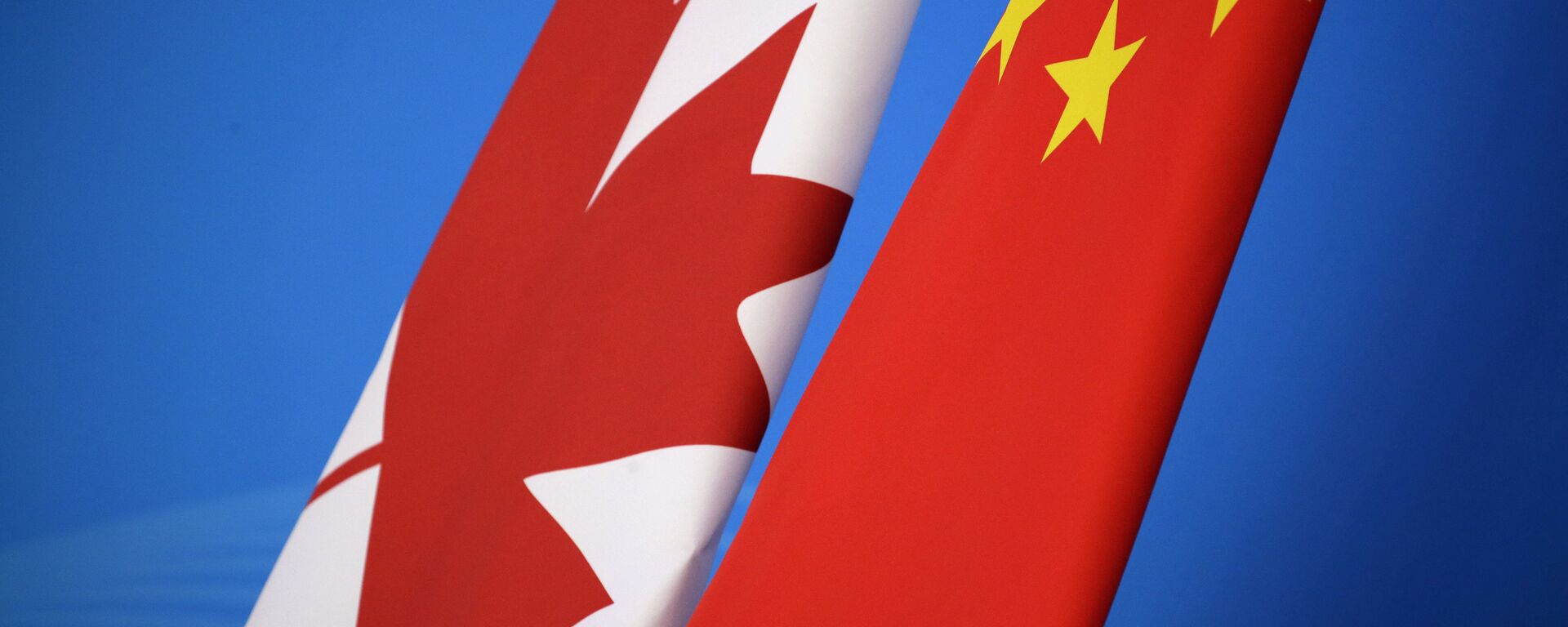
3 November 2022, 09:38 GMT
One of the reasons Xi’s departure from his typical diplomatic style in his exchange with Trudeau is so rare has to do with culture. In the Anglosphere’s diplomatic tradition, wheeling and dealing and leaks are a legitimate part of the political game. As Private Secretary Humphrey Appleby famously
quipped in the hit 80s BBC series ‘Yes, Minister,’ “the ship of state is the only ship that leaks from the top.”
In Chinese politics, things are different, and decorum and tact remain on display even when a fierce battle may be raging behind the scenes. It’s enough to recall how the mere footage of a visibly unwell former Chinese president Hu Jintao being led off the stage of the tribune at last month’s Communist Party Congress sparked endless speculation in Western media about whether it was really some kind of hidden power move by Xi.
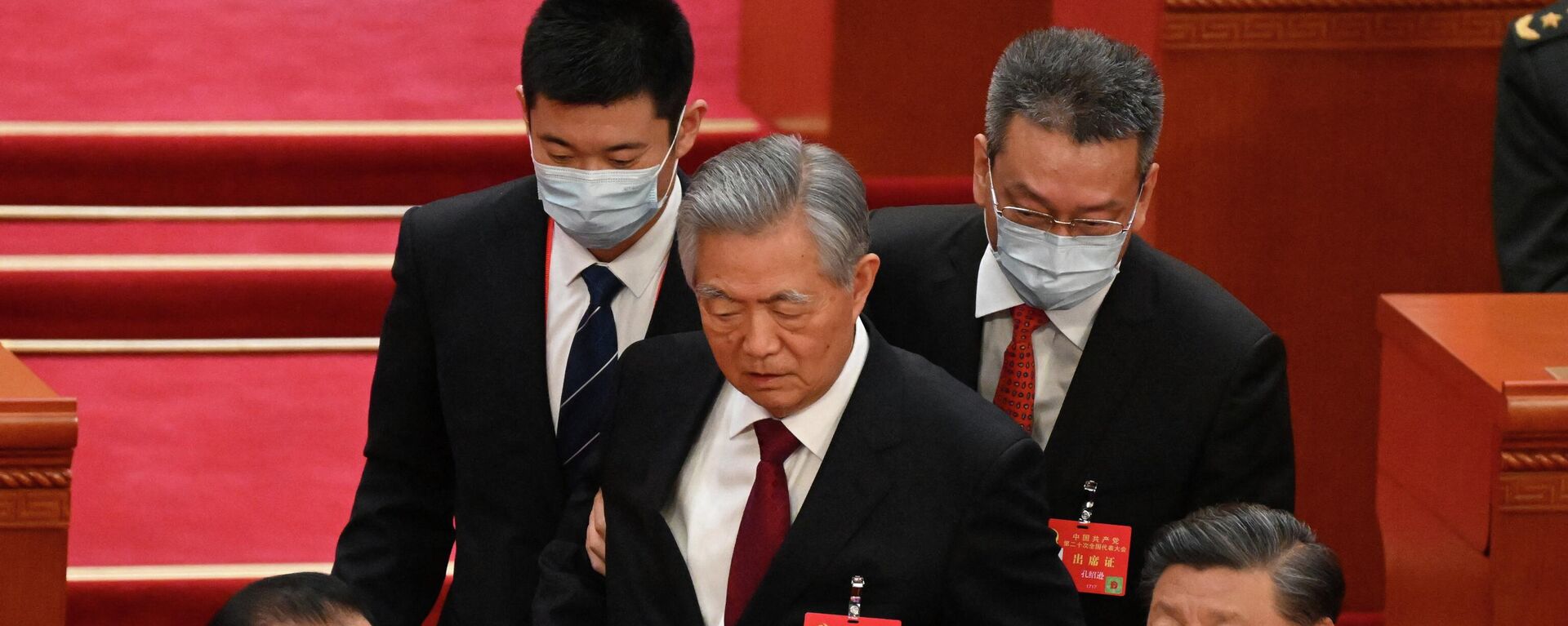
22 October 2022, 16:57 GMT
Ultimately, nothing justifies the lack of tact shown by Trudeau in leaking the details of their Bali talks to the press. The Oxford Dictionary
defines “diplomacy” as “the art of dealing with people in a sensitive and tactful way.” In sensitive diplomatic conversations where one or both sides are often asked to make concessions they would prefer not be made public, that means not blabbing to reporters the moment you walk out of the negotiations room.
The lack of tact shown by Ottawa vis-à-vis the Chinese is not unique. In an interview with Sputnik earlier this month, former Austrian Foreign Minister Karin Kneissl pointed out that in today’s world, many leaders have “lost all capacity to look into each other’s eyes, to take time and to build trust through conversation.”
“Something has been lost, in particular in the Northwestern Hemisphere, but still exists to a certain extent, if I may say, in the Middle East, in the Eastern parts of the world, is taking your time and dedicating interest to your counterpart in a political conversation,” Kneissl stressed.
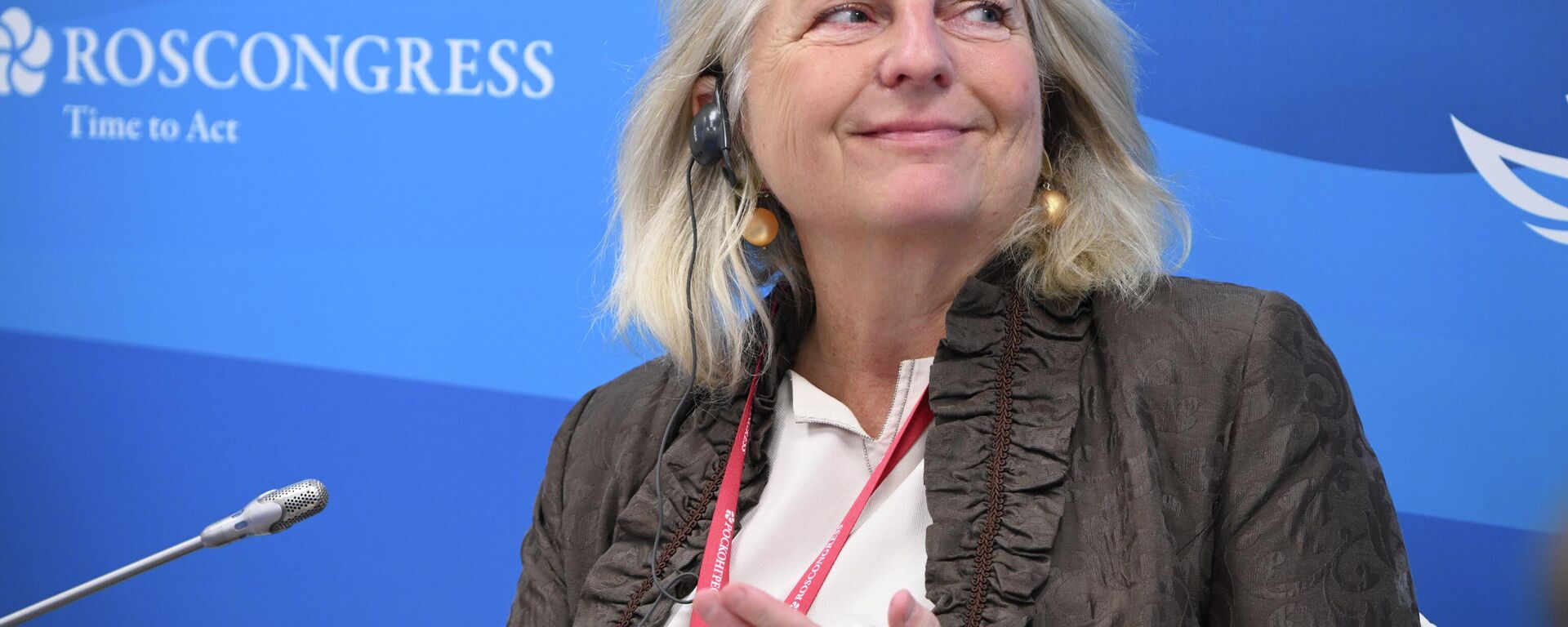
3 November 2022, 18:52 GMT
Suggesting that diplomacy had “died a silent death” in recent years and was replaced by computer-aided “Zoom diplomacy,” Kneissl said that today, the vocabulary used, as well as “the attitude of some high-ranking government officials, professional diplomats, has nothing to do with what I would call a genuine conversation that can lead to something.”
Perhaps if Prime Minister Trudeau cut down on table yoga and political virtue-signaling and took a page out of the Austrian diplomat’s playbook, his government could finally patch up the troubled relationship with an Asian superpower which his father helped forge fifty years ago and he managed to ruin in four.
